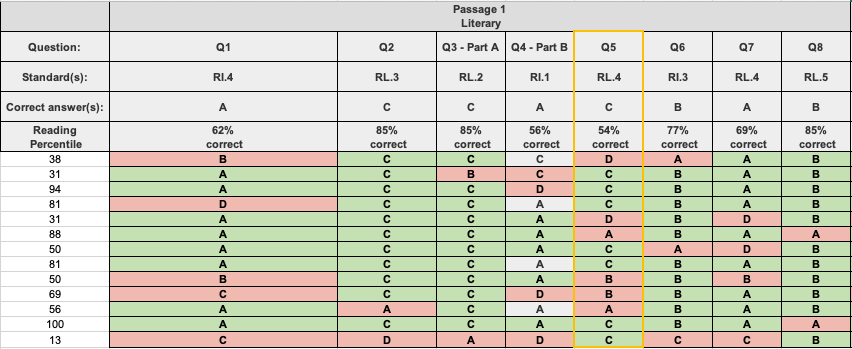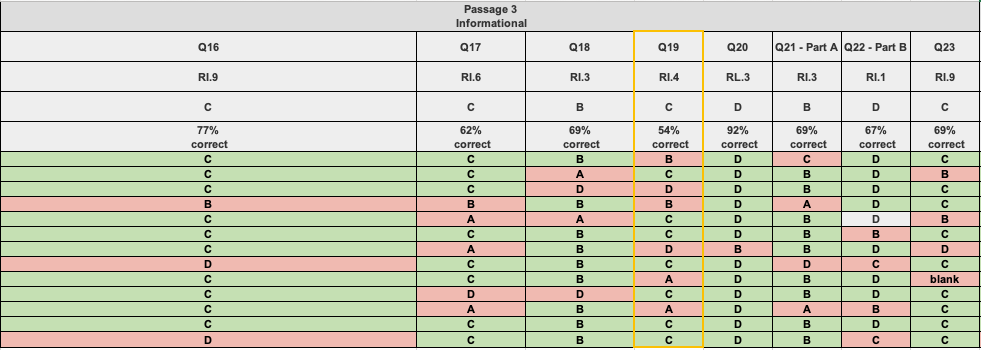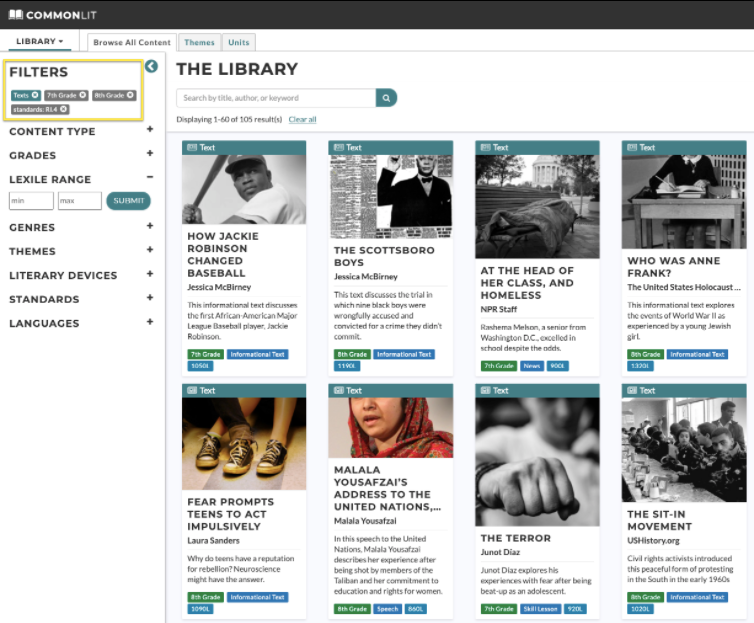CommonLit’s Interim Assessments are a great way to assess student reading and writing ability. These assessments include 20–30 questions that cover a range of standards on literary and informational texts. By using these assessments several times per school year, teachers and administrators are able to gain a quick snapshot into student performance, and ultimately, student progress throughout the school year.
While CommonLit Interim Assessments are a great tool for measuring student reading ability, they can also be a great opportunity to collect actionable data that can be used to drive future student learning. This blog post is going to walk you, the teacher, through some of the best practices for analyzing student assessment data, identifying trends, and leveraging lessons on CommonLit to effectively remediate instruction.
Step 1: Downloading Your Interim Assessment Data
Soon after students complete their CommonLit Interim Assessment, go to testing.commonlit.org, and log into your account.

Once you’re logged into testing.commonlit.org, download your latest data report by clicking the “Download Data Report” button on the right side of the page to analyze the performance of all of your students.

Step 2: Analyzing Your Interim Assessment Data
Once you’ve downloaded your data report, begin looking for trends. Did students perform better on the literary text or on the informational texts? Did students perform particularly well on a certain standard? Were there any specific questions or standards that students really struggled on?
If we look more closely at the sample class below, we can see that the class did well overall. However, they struggled on Question 5, which assessed RL.4. For many students, RL.4 can be a tricky standard as it requires students to analyze the meaning of words in context.

If we continue to look into the data from this class, we’ll notice that students also struggled on standard RI.4 in Question 19:

Just like RL.4, RI.4 measures students’ ability to analyze the meaning of words in context. As such, we’re starting to see a clear trend. As teachers, this can help us to plan the next steps for our instruction.
Step 3: Look Back at the Interim Assessment
So far we’ve established that students had difficulty answering questions that assessed both RL.4 and RI.4. The next step is to look back at the assessment questions and think about what made these questions tricky.


As we noted above, these questions are all about uncovering the meaning of words in context. When we plan our next steps for instruction, we’ll want to keep this in mind and plan a lesson that targets those skills.
Step 4: Planning Next Steps for Instruction
Now that we know exactly which skills and standards we want to focus on, it’s time to go to the CommonLit library to find the perfect lesson to use with our students.
You can use the filters on the left side to help you narrow down your search. More specifically, try filtering by the grade level of your students and the standards that you’ll be focusing on. Check this out below:

In the photo above, you can see that I decided to focus on RI.4 first and filtered to only view 7th and 8th grade lessons. I am left with 105 nonfiction passages for me to choose from. Browse through the filtered results to find a lesson that will be of high interest to your students.
Let’s say I decide to take a closer look at the nonfiction article, “How Jackie Robinson Changed Baseball.” After reading through the lesson, I can see it has an RI.4 question that’s similar to the question on the Interim Assessment and it will be interesting to my students. Check this out below:

Now, I’ve found a great lesson that will give my students extra practice identifying the meaning of a challenging word in context. Now, I can either assign this lesson digitally to my students on CommonLit or can share a paper copy of this lesson for my students to work on!
Next Steps
Our team is excited to continue supporting your work. If you have any questions about how to best leverage the CommonLit library to support instruction, don’t hesitate to contact us at Partnerships@CommonLit.Org. We’re here to help!


